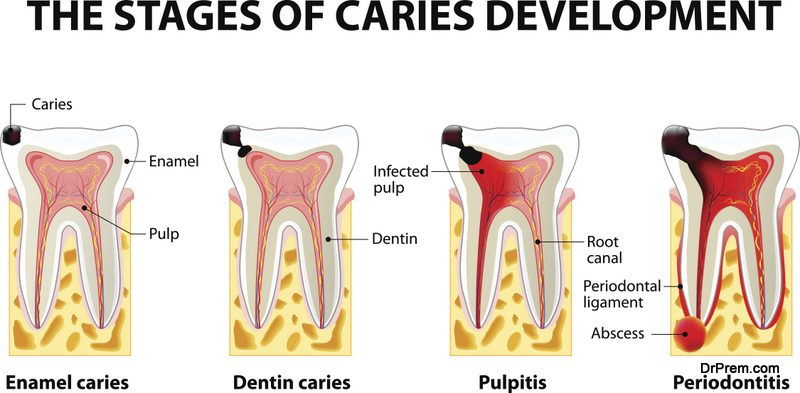There is nothing more painful than a dental abscess. While this type of infection can involve the jaw, throat, cheek, mouth and even the face, it is almost always contributed to a deep cavity, resulting in a tooth infection. Whatever the case may be, the pain will prompt a dental visit. There are several ways to treat dental abscesses. Depending on the severity of the infection, the dentist typically prescribes an antibiotic for up to 14 days. You will then be required to return to a dental office for further treatment. Below, you will discover more information about dental abscesses.
What Causes Dental Abscesses?

As mentioned above, the most common cause of dental abscesses is a deep cavity. Other causes include trauma, a cracked tooth and recent and previous dental procedures, like implants and extractions. Another common cause of dental abscesses is periodontal disease and poor dental health. The dentist will determine what contributed to the dental abscess to prevent recurring infections.
People with autoimmune disorders, such as Sjogren’s syndrome, are at a high risk of developing dental abscesses. People undergoing chemotherapy and immunosuppressive therapy are also at high risk. If you fall into these categories, you should speak with your dentist about the possibility of developing dental abscesses. Your dentist will provide you with a variety of dental hygiene tips that will lower these risks.
Pain And Dental Abscesses
Depending on the severity of a dental abscess, the symptoms can range from moderate to severe. If the infection is localized to the tooth, the pain will not be as severe as if it involves the surrounding tissue, jaw, facial bones and cheek. The pain is the result of inflamed tissue that puts pressure on the nerves.
In some cases, patients have remained asymptomatic (complain of no pain), even though they have a dental abscess. While this is rare, it is possible for the immune system to tries to prevent the infection from spreading to the surrounding tissues. However, if a dental abscess is not treated promptly and properly, you will eventually begin to experience pain. As soon as you detect a dental abscess, you should immediately contact your local dentist in Maple Ridge, BC.
Can A Dental Abscess Cause Death?
 Some people will try to ignore their condition, but this is not wise. In severe cases, a dental abscess can result in death. In these cases, the infection will spread to the brain, resulting in a condition known as septicemia. This is a life-threatening condition that can lead to the obstruction of the airway, resulting in death.
Some people will try to ignore their condition, but this is not wise. In severe cases, a dental abscess can result in death. In these cases, the infection will spread to the brain, resulting in a condition known as septicemia. This is a life-threatening condition that can lead to the obstruction of the airway, resulting in death.
Symptoms Of Dental Abscesses
As mentioned above, the symptoms of dental abscesses can vary, depending on the severity of the infection. More common symptoms include swelling, redness and pain. More advanced infections will also cause the above symptoms, as well as vomiting, nausea, chills, fever and difficulty breathing and swallowing. If the infection involves the jawbone, you may have difficulty opening your mouth.
If the facial bones are involved, your face may be red, swelled and tender to touch. Pus drainage is also very common in severe cases.
Article Submitted By Community Writer




